Landscape architecture practice Maetherea Studio has used rusty iron rebars to create an “amphibious” installation that emerges from reedbeds of the River Yare in Norfolk.
Named Iron Reef, the installation is made from slim vertical bars of red-toned weathered metal that increase in height in a curved formation.
Maetherea Studio‘s design draws on the local landscape and is designed to sit in both the earth and water to withstand changing tides at the site.
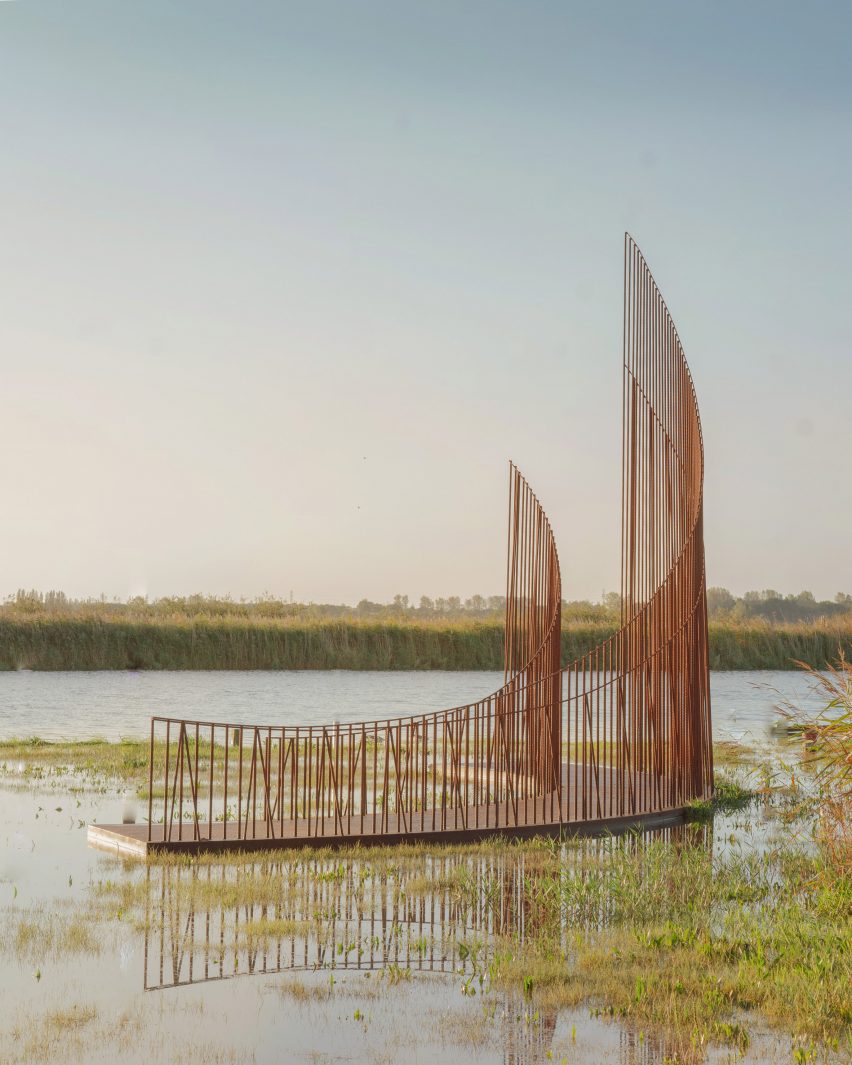
“As an amphibious structure, it can live on both earth and water,” the studio told Dezeen.
“Being cyclically submerged by the winter tides, it emerges as a landmark between the reeds, like a wherry’s sail, the traditional Norfolk boats sailing on the Broads.”
The rebars form the main part of Iron Reef, placed vertically to mimic the surrounding reeds.
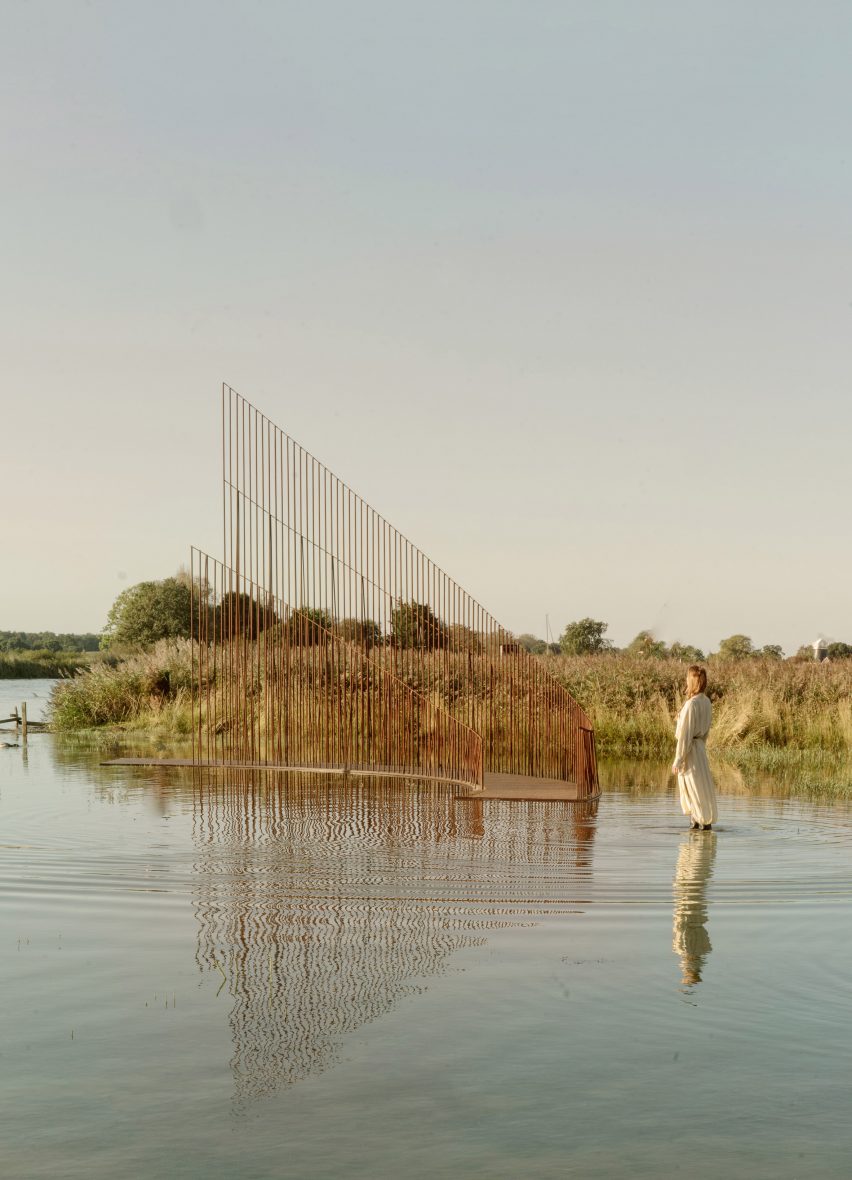
In plan, they are arranged in two C shapes along either side of a curving boardwalk.
“The Iron Reef is a site-specific sculpture, interacting with the site and its landscape as a performance,” said Maetherea Studio.
“Rebars are its vertical elements, they tie the natural environment evoking the reeds, gently oscillating on the horizon.”
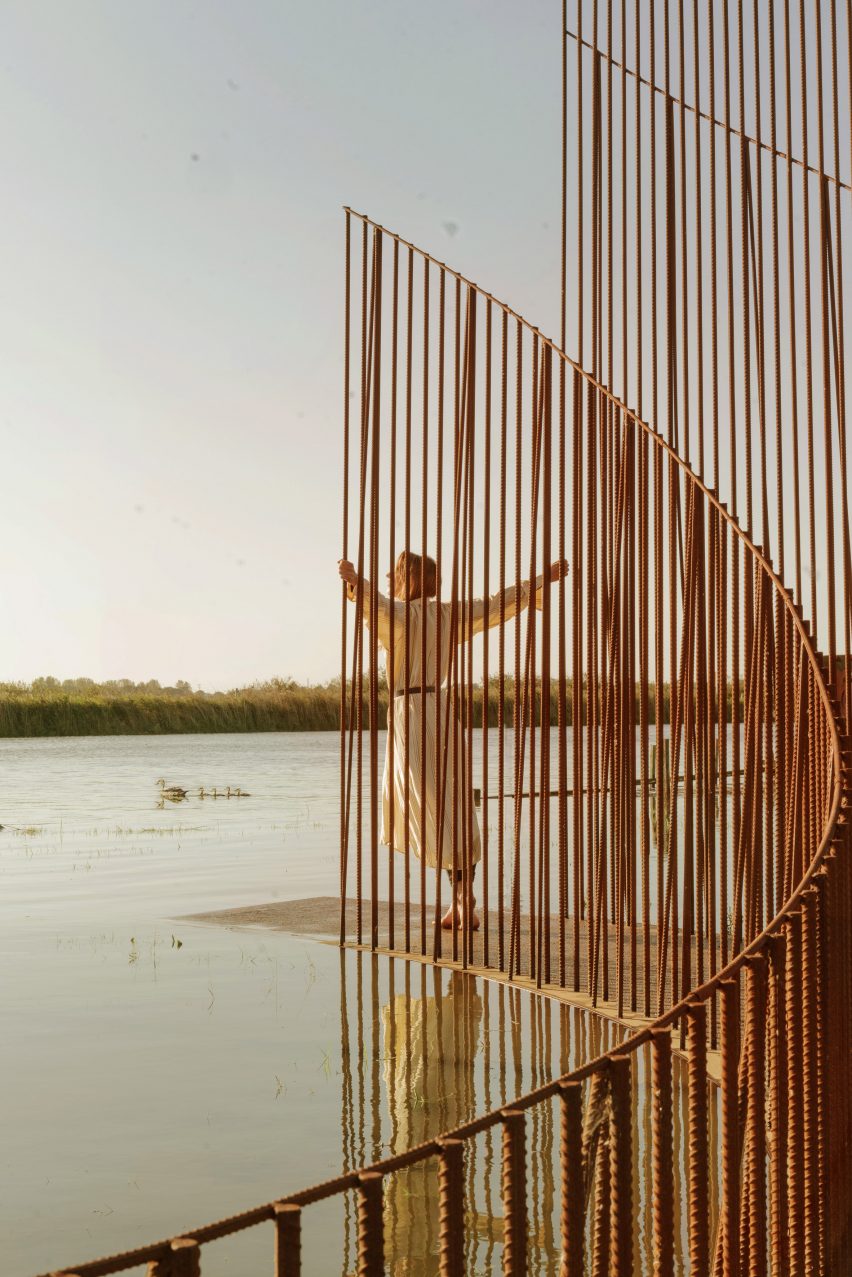
The rusted metal bars are intended to celebrate the industrial character of the Norfolk landscape, selected for their resemblance to the metal mechanisms of the Reedham Ferry – a historically significant local transport system. Their colour is hoped to deepen as the tides submerge them.
“The materiality embraces time alterations, referencing the industrial and nautical tradition of Reedham Ferry, the underwater ruins created by the water,” said the studio. “The tides from the river modify the material, adding patina and oxidation as a performance of colour.”
Between Iron Reef’s C-shaped walls, the boardwalk is made of red resin-bound granite. The short, curved platform doubles as a viewpoint over the river.
“Shaped by the winter tides, the walkway functions as a tidal jetty,” Maetherea Studio explained. “People are invited to interact with it, reaching the end of the platform to observe the landscape through the season’s changes.”
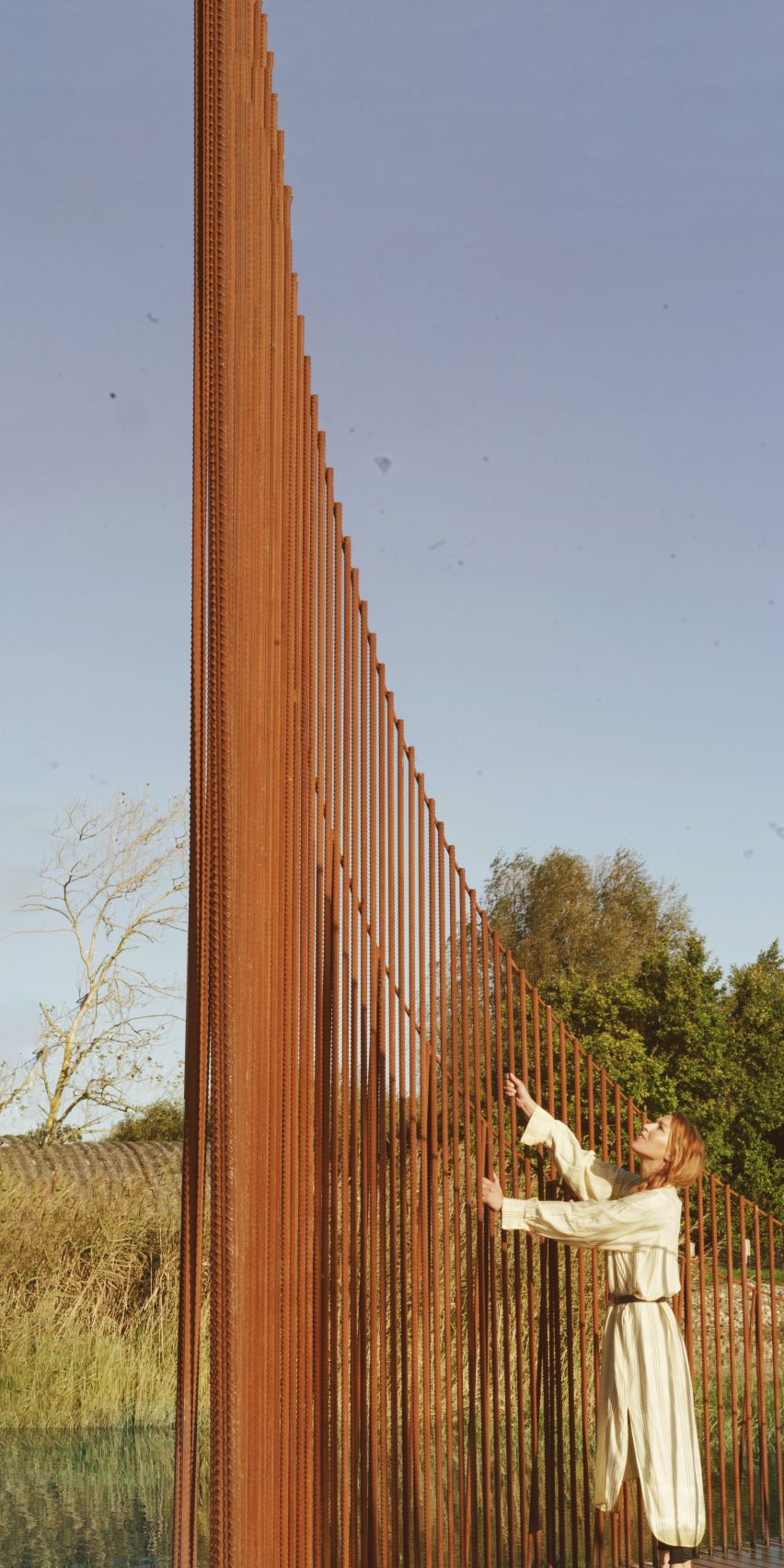
As well as being designed to act as a viewing platform, the curving walkway features a zero-energy lighting system that illuminates the structure overnight.
“The walkway includes UV-powered Eco-chips, which transform the resin-based surface into a light-responsive, sustainable pathway,” said the studio. “This poetic technology absorbs UV during the daylight hours and releases it as a bioluminescence at night.”
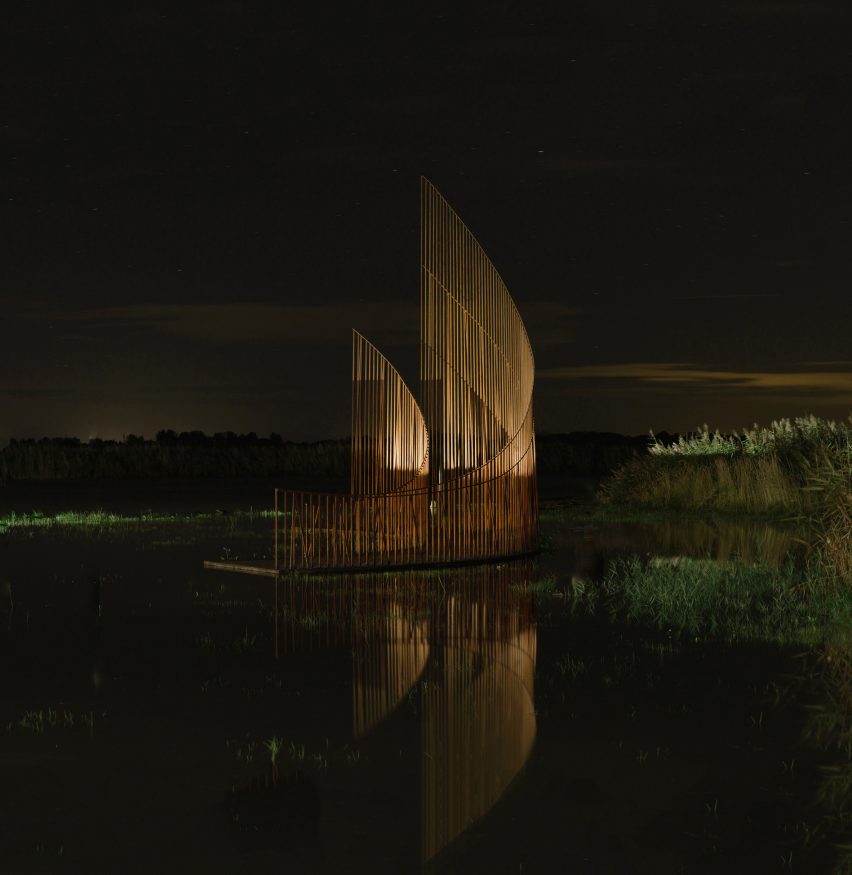
To ensure minimal disruption to the site, the studio prefabricated the installation as six separate modules, before assembling it on site. The area surrounding the structure has been planted with a coastal meadow flower mixture in an effort to increase biodiversity.
Other nature-informed installations recently featured on Dezeen include a pair of structures at Milan Design Week informed by flowing water and a spruce log pavilion with a perforated roof inspired by natural openings in a cave.
The photography is by Kristina Chan.

إرسال تعليق